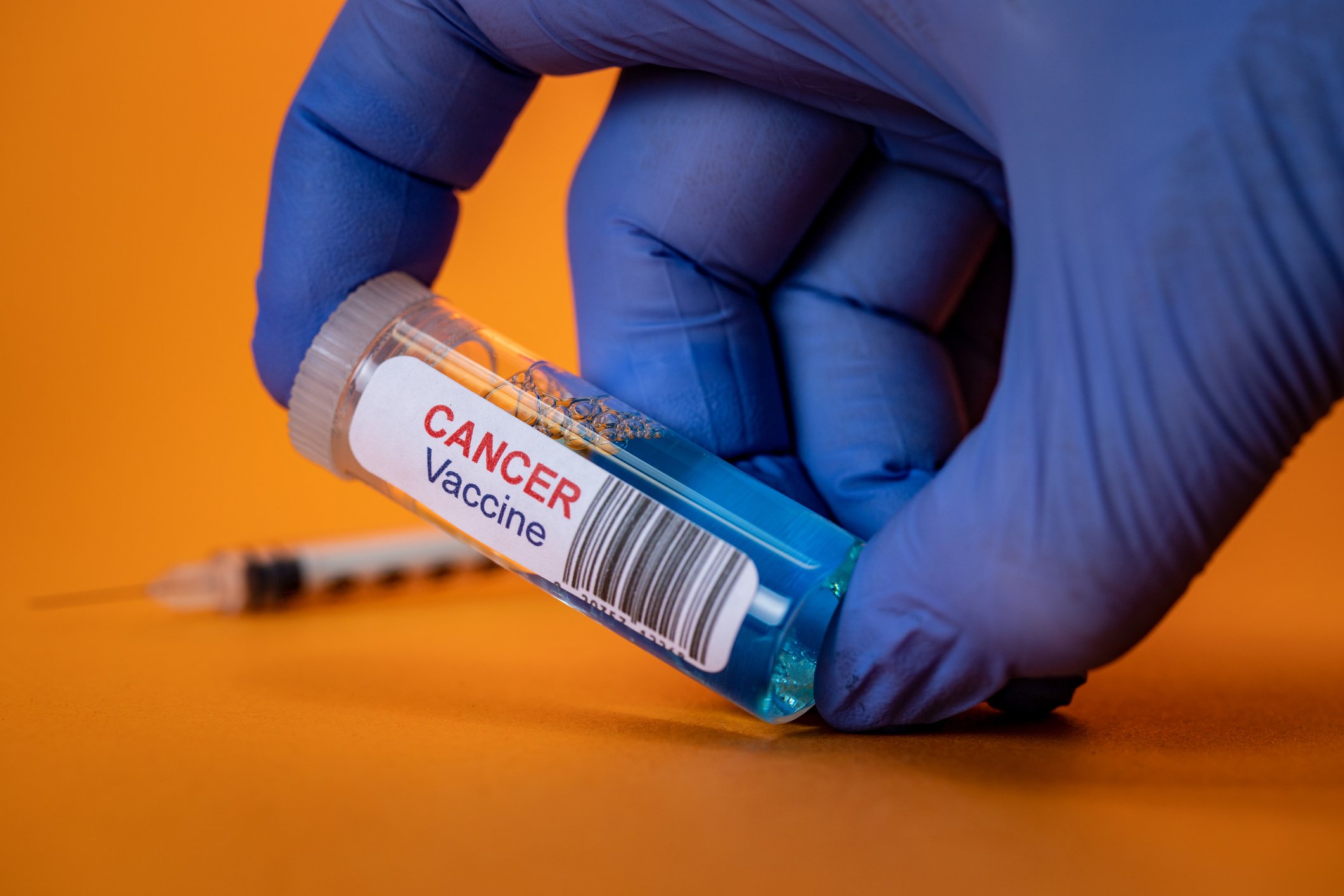Moderna’s New Cancer Vaccine Has Been Designated As “Breakthrough” By The FDA.
Food and Drug Administration (FDA) announced the designation, which could shorten the approval process to as little as eight months due to the encouraging results.

Health officials have designated a cancer vaccine developed by Moderna as a “breakthrough medicine,” opening the door for a quick clearance. The injection is administered combined with an immune therapy medication developed by Merck to treat patients with advanced melanoma who are at risk of tumors coming back.
In comparison to the immune therapy medicine alone, the combination significantly decreased the risk of recurrence or mortality in patients after surgery, according to a phase two trial.
In comparison to the immunotherapy medicine alone, the combination significantly decreased the risk of recurrence or mortality in patients after surgery, according to a phase two trial. The Food and Drug Administration (FDA) announced the designation, which could shorten the approval process to as little as eight months due to the encouraging results.
The most dangerous type of skin cancer, melanoma, affects more than one million people in the United States, with around 4% of those individuals having advanced stages of the condition, The immunotherapy medication Keytruda from Merck and Moderna’s injection make up the experimental treatment. The FDA feels that the vaccine may “address the unmet medical need in the treatment of severe or life-threatening illnesses” as a result of the new “breakthrough” label.
In real words, it implies that throughout the production of the shot, the agency will meet often with Moderna to discuss its status. Also, if Moderna submits another application for expedited approval and priority review by the FDA, the move qualifies the medication for these processes. Within 60 days, the FDA would reply to this. If approved, priority review would allow the regulator to decide whether to approve the therapy within six months of Moderna filing its application, as opposed to the regular review period of ten months.
It is known that Moderna has not yet submitted the therapy to the FDA for approval, even though the business plans to start the phase 3 research later this year. Before being approved for broad use, the majority of drugs or vaccines frequently need to pass phase three investigations. But, in exceptional circumstances, a drug may be authorized earlier if phase one and two trials indicate that it is both safe and effective. The new vaccine uses mRNA technology, which gives the body instructions on how to fight cancer by feeding it genetic material from tumors that patients have had removed.
The vaccine is administered to patients after surgery to stop the tumor from coming back, and because it is customized for each patient, no two doses will be the same. The medication will be put to the test on maybe thousands of patients in a phase three research that Merck and Moderna said they want to start this year. In addition, they will “rapidly broaden” their focus to include non-small cell lung cancer.
157 patients were administered tailored vaccinations in addition to Merck’s immunotherapy medicine Keytruda as part of the continuing phase two research. They will be contrasted with a control group of patients with high-risk melanoma who are solely receiving Keytruda. It has been a year since the trial began. If it is successful, a much bigger group made up of thousands of patients will undergo the vaccine’s testing. Within a year, Moderna was able to create, test, and secure approval for their Covid injection. The vaccine makes use of tumor-derived DNA from each patient.
Afterward, this genetic fragment is introduced into messenger RNA, which is the molecule that contains a cell’s protein-making instructions. While within the body, the mRNA transmits this portion of code to human cells, instructing them to identify cancer cells and combat them if they reappearance. It is hoped that the body would be able to detect them and eliminate them before they have a chance to grow and develop into tumors. Together with one course of Keytruda every three weeks, the vaccination is administered in nine doses every three weeks.
According to the American Cancer Society, melanoma incidence has been sharply rising in recent years. In the US, it is predicted that 99,780 new melanomas would be detected in 2022 (about 57,180 in males and 42,600 in women).
How do vaccinations for prevention work?
To prevent diseases brought on by viruses or bacteria, the majority of vaccinations are given to healthy individuals before they get unwell. They include shots to stave off infections including COVID-19, measles, polio, and many more. Moreover, scientists have created vaccinations to stop various malignancies brought on by viruses including the Epstein-Barr virus and human papillomavirus.
Your immune system detects substances that shouldn’t be inside your body, such as allergies and some microorganisms, and starts a chain reaction of cellular reactions to fight and eliminate them. As a result, when a virus or bacteria enters the body, the body recognizes it as something alien and mounts an immunological defense against it. Cellular memory is created as a result, causing the immune response to be even quicker the next time the same pathogen invades.
For instance, HPV, which causes cervical cancer, is protected by the Gardasil-9 vaccination. It has viral protein components that don’t cause illness but do trigger an immune response that guards against becoming infected with HPV in the future, avoiding cervical cancer.
How does the cancer vaccine from Moderna function?
According to the most recent research, skin melanoma is not brought on by a viral infection, unlike cervical cancer. Along with Gardasil-9, Moderna’s experimental vaccination does not prevent cancer. Similar to preventative vaccinations that the majority of people are familiar with, the Moderna vaccine teaches the immune system to ward against an intruder. The intruder in this instance is a tumor, a malignant variation of healthy cells that contains aberrant proteins that the immune system may identify as foreign and combat.
Where do these aberrant proteins come from and what do they do?
Proteins and other biological components including carbohydrates, lipids, and nucleic acids are the building blocks of all cells. Mutations in DNA sequences that contain instructions for making proteins are the root cause of cancer. Neoantigens, aberrant proteins produced by mutated genes that the body detects as alien, are abnormal proteins. It may cause an immune reaction to attack a developing tumor. The immune system can occasionally fall short in mounting a powerful enough fight against the cancer cells, or the cancer cells may have discovered a means to evade the immune system’s defenses.
A fraction of the neoantigens found in the tumor is encoded in Moderna’s experimental melanoma vaccine. The Moderna and Pfizer-BioNtech COVID-19 vaccines both include mRNA, which is the same kind of genetic data. Because the vaccine only encodes tiny, inactive portions of the protein, it cannot induce cancer. The body’s translation of the genetic information into those protein fragments prompts the immune system to fight the tumor. Hopefully, the tumor will shrink and vanish as a result of this immune response.
edited and proofread by nikita sharma





